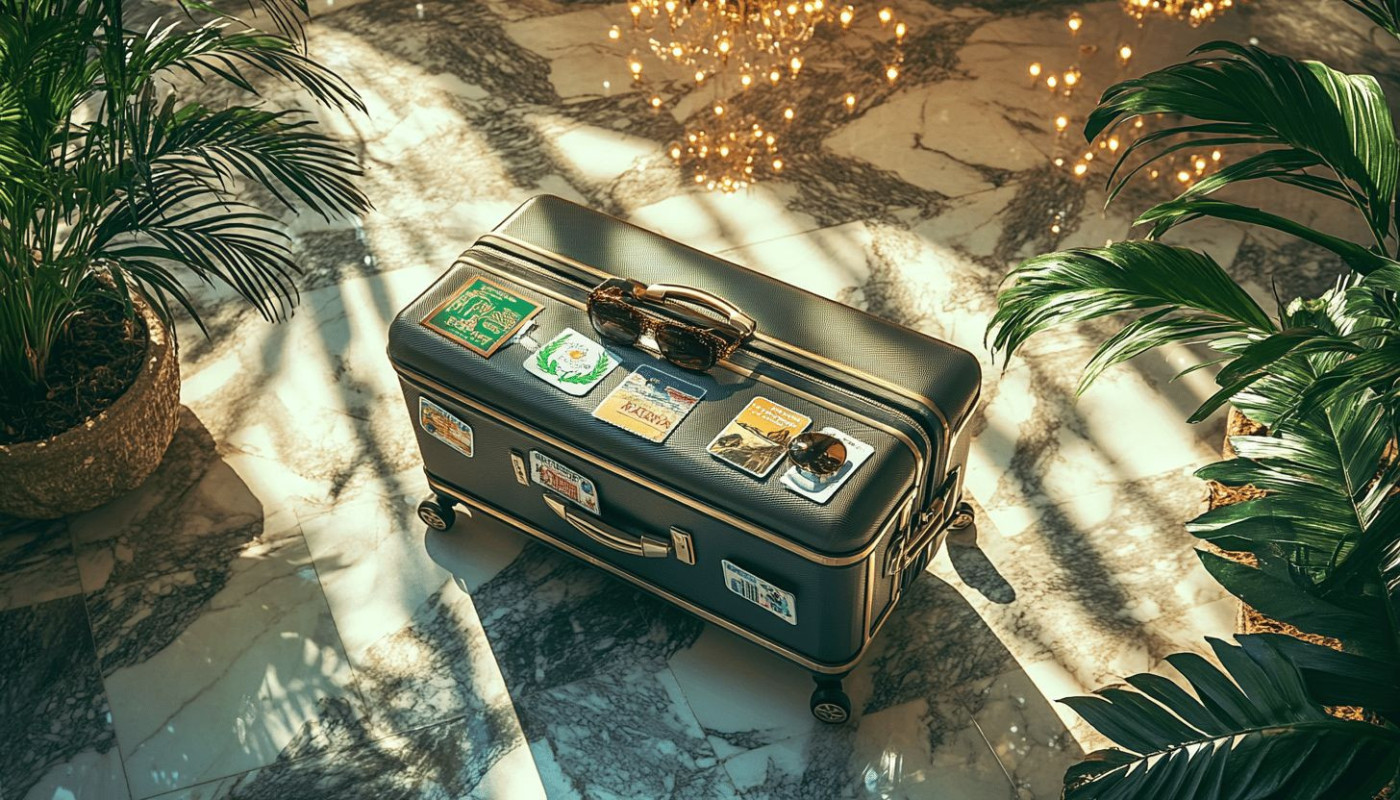Table of contents
Luxury travel is undergoing rapid transformation as discerning travelers seek richer, more personalized experiences. Shifting consumer expectations, a surge in digital innovation, and growing environmental consciousness are shaping the landscape in unprecedented ways. Delve into the following sections to uncover actionable insights and strategies that can elevate any luxury travel business in an evolving market.
Personalization at the Forefront
Personalized travel has quickly become a driving force in luxury experiences, with discerning guests expecting every aspect of their journey to reflect individual preferences. As travelers seek deeper connections and memorable adventures, businesses can no longer rely on generic offerings. Harnessing data-driven insights, especially through the use of predictive analytics, empowers companies to anticipate guest preferences and deliver tailored services that surpass expectations. Artificial intelligence and big data play a pivotal role in this transformation, enabling seamless collection and analysis of customer behaviors, past interactions, and real-time feedback. Businesses looking to stay ahead should invest in robust data systems, integrate AI-powered recommendation engines, and ensure staff are trained to translate these insights into actionable enhancements. By weaving technology with a commitment to personalized attention, luxury brands can curate truly bespoke experiences that foster loyalty and set new industry benchmarks.
Sustainable luxury travel demand
Luxury travel is experiencing a marked shift as discerning travelers increasingly prioritize sustainable travel options without compromising on exclusivity or quality. There is growing awareness among eco-conscious clients who expect luxury operators to implement robust eco-friendly luxury initiatives. Adopting regenerative tourism—a concept that goes beyond minimizing harm and actively seeks to restore environments and communities—is now a strategic imperative. Effective strategies involve achieving green certification from reputable bodies, which reassures guests of a property’s commitment to best practices in energy efficiency, water conservation, and waste reduction. Integrating carbon neutrality into operations, from investing in renewable energy to supporting verified offset programs, further enhances credibility and appeal. Ethical sourcing of products and partnerships with local communities not only support social responsibility but also deliver authentic experiences that resonate with modern luxury travelers.
Balancing luxury with eco-responsibility involves innovative guest experiences, such as curated low-impact adventures, wellness activities grounded in local biodiversity, and personalized education on sustainable practices. Businesses should leverage technology to track and communicate sustainability progress, including visible metrics on resource savings and emissions reductions. Aligning with regenerative tourism principles, these initiatives foster a symbiotic relationship between travelers and destinations, ensuring long-term viability for both the environment and high-end hospitality. The demand for sustainable travel will only intensify, making it vital for operators to adopt a proactive stance, securing their position among leading eco-friendly luxury brands while setting new benchmarks for the entire industry.
Technology-driven guest interactions
Luxury travel technology is reshaping how guests interact with high-end services, directly impacting the guest experience through innovations like contactless check-in, digital concierge platforms, and smart hotels equipped with Internet of Things (IoT) devices. Today, travelers expect seamless, personalized service, and smart room controls—ranging from automated lighting and climate systems to voice-activated entertainment—create a tailored environment that anticipates each guest's preferences. Mobile apps now offer everything from room selection and digital key access to real-time requests for amenities, resulting in frictionless, contactless service that enhances privacy and convenience without sacrificing the sense of exclusivity that defines luxury hospitality.
Businesses looking to elevate their guest experience must invest in IoT infrastructure to enable these advancements, while ensuring robust cybersecurity and data privacy protocols. Digital concierge solutions leverage artificial intelligence to provide guests with intuitive, always-available support, answering questions, making reservations, and even suggesting bespoke experiences based on personal interests. Smart hotels also benefit operationally, as IoT devices can monitor energy usage, automate maintenance alerts, and optimize service delivery, supporting both sustainability and impeccable service standards within luxury travel technology ecosystems.
To successfully integrate these emerging tools, companies must balance innovation with the unique expectations of their clientele. Training frontline staff to complement smart technology with personalized, human interactions is key, preserving the exclusive ambiance that guests prize. Moreover, careful deployment of immersive digital experiences—such as virtual reality tours or augmented reality property guides—can further differentiate a brand, provided these enhancements feel seamless and discreet. Ultimately, smart hotels embracing digital concierge and contactless service will define the future of luxury travel technology, setting new benchmarks for guest experience while maintaining the sophistication that discerning travelers demand.
Experiential and transformative travel
The landscape of luxury travel is shifting as discerning travelers increasingly prioritize experiential travel and transformative journeys over material indulgences. Instead of conventional five-star accommodations or lavish amenities, many now seek immersive experiences that offer deep cultural engagement, personal growth, and authentic connections with local communities. Experiential design plays a fundamental role in crafting these unique offerings, enabling businesses to curate customized moments, from hands-on culinary workshops with local chefs to private guided tours of heritage sites, that resonate on an emotional level. The rise in wellness tourism also reflects this trend, with travelers desiring holistic health retreats, mindfulness programs, and adventure escapes that promote both mental and physical well-being.
Businesses aiming to capture this market must rethink their approach by integrating experiential design into every stage of the customer journey. Collaborating with local experts to offer behind-the-scenes access, cultural immersion, and story-driven experiences can set a brand apart. Adventure activities such as guided hiking expeditions, eco-friendly safaris, and interactive art installations enable guests to push personal boundaries and return home transformed. Wellness tourism initiatives—like immersive spa rituals, meditation retreats, and fitness adventures—address the growing desire for self-care and rejuvenation during travel. These services should be tailored to individual interests, leveraging technology and data insights to anticipate and fulfill unique guest expectations.
For global relevance, it is crucial to understand the specific aspirations of emerging traveler demographics. For instance, the chinese tourist market demonstrates a strong appetite for authentic, memorable, and culturally rich experiences, making it an ideal audience for brands that excel in experiential travel. Businesses looking to thrive in the evolving luxury sector must prioritize immersive experiences, transformative journeys, and genuine cultural engagement, ensuring that each travel encounter is unforgettable and personally meaningful.
Exclusive privacy and personalization
Privacy in luxury travel has become a top consideration for discerning clients, as travelers increasingly seek secure travel experiences that prioritize discretion and comfort. The demand for secluded accommodations is on the rise, with guests preferring private villas, penthouses, and remote estates that guarantee minimal intrusion while maximizing exclusivity. Businesses are responding by crafting bespoke itineraries tailored to individual preferences and offering exclusive services such as personal security details, private chauffeurs, and direct check-in processes that bypass crowded lobbies. Integrating risk mitigation strategies, such as advanced screening protocols and confidential guest handling, ensures that travelers feel protected at every stage of their journey. By delivering discreet, attentive service that anticipates needs without compromising privacy, businesses can foster trust and loyalty among their high-net-worth clientele while maintaining the highest standards of secure travel.
On the same subject

Exploring The Fusion Of Modern Amenities And Cultural Heritage In 3-star Accommodations

Exploring The Charm Of Rustic Beam Bedrooms In Modern Accommodations

